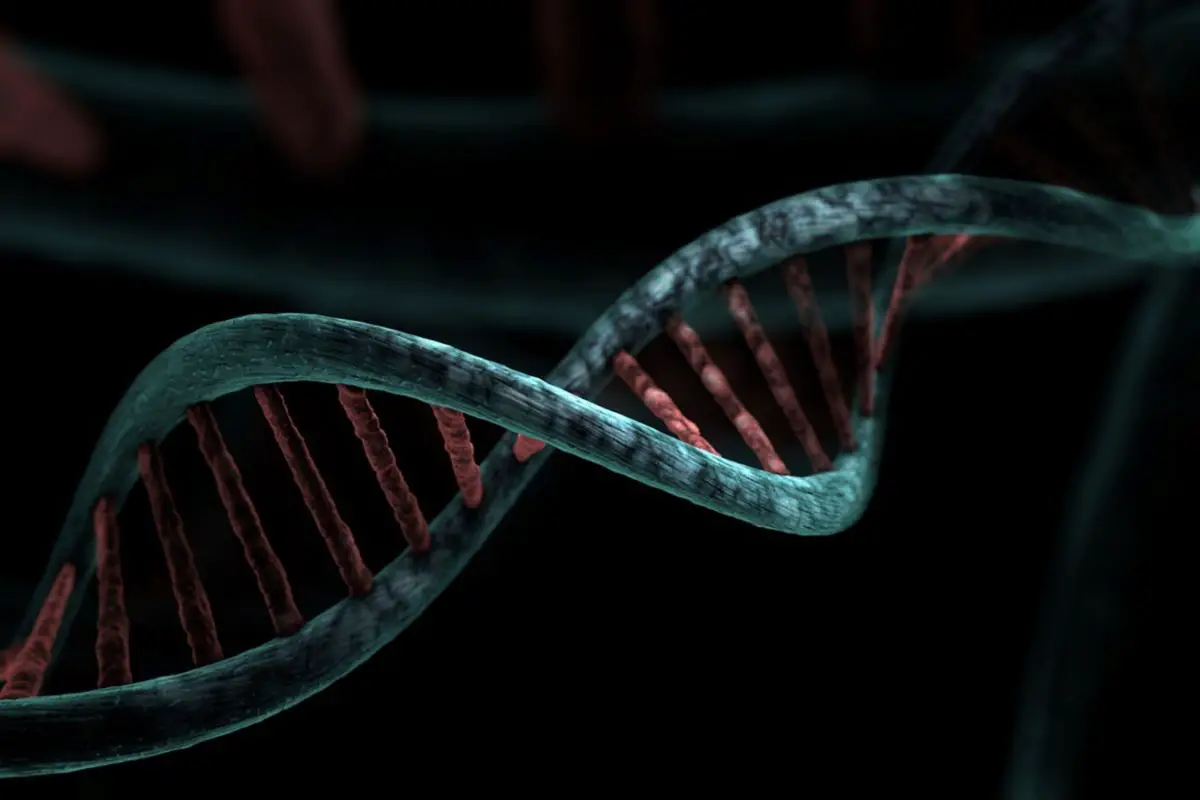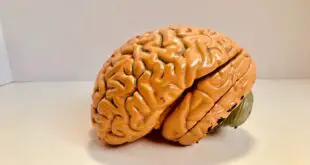Urine is the medical term for our liquid excrement, or what we commonly call pee. Urine carries excess fluid from the body, as well as non-essential waste from our body. Now, any chance our urine may hold more than that? Does urine hold DNA?
Urine does contain some DNA, but not nearly as much as blood or saliva. On top of that, DNA also degrades faster in urine, making it difficult to extract and give valid test findings. Your first-morning urine often contains the most DNA, making it the best sample to extract DNA from.
In this post, we discuss DNA in our urine sample and other questions you may have about it, such as how long it lasts before degrading and if you can extract it. We also see if we can extract DNA from other excrement sources.
Does Our Urine Hold DNA?
Human urines do hold DNA, but not directly. DNA in human urines is often detected through the epithelial cells in the urine. Females tend to have higher DNA counts in their urine as it passes through vaginal walls. This means female urines tend to have higher epithelial cell counts.
DNA stands for Deoxyribonucleic acid. It contains information about your biological identity. DNA can also contain information about your health, gender, and age. DNA comprises Nucleotides, which include 2-deoxyribose, nitrogen bases, and phosphate groups.
Urine is a liquid by-product of humans and in many other animals. Cellular metabolism generates many by-products that need to be cleared from our body, such as urea, uric acid, and creatinine. Water soluble wastes are usually removed through the urine.
Urination is one of the ways the human body extremes waste, aside from sweat and feces. During urination, urine flows from the kidneys through the ureters to the urinary bladder. In turn, the urine leaves the body through the urethra.
The precise markers in each strand of DNA are assessed in the blood by white blood cells and epithelial cells situated on the surface layers of your skin. DNA can be discovered in saliva, hair follicles, decomposing bones, and blood.
While DNA can be discovered in urine, it is not because the pee itself contains DNA but instead because pee contains epithelial cells, which contain DNA.
It may be easier to detect DNA in female urine because female urine usually has a higher epithelial cell count. This is the result of their pee passing through vaginal walls.
How Long Does Urine Hold DNA For?
DNA generally degrades faster in urine than in other samples such as blood or hair. With proper and advanced storage, DNA in urine can last up to 28 days. At room temperature, DNA in urine degrades by 75%, making it almost useless for any scientific work.
In biological science, urine samples are often seen as one of the harder samples to extract DNA from. This is because urines do not contain much DNA to start with. DNA also degrades much faster in urine than in samples such as blood or hair.
Many efforts need to be performed to preserve DNA in urine. This is because when urine is stored at -20°C for 28 days, approximately 75% of the DNA degrades, making quantitative recovery difficult.
To maximize the longevity of the DNA, urine samples need to be stored at ultra-low temperatures of -113°F (-80°C). This may help the urine to preserve enough DNA, but storing it at such a temperature is costly. Storing samples at such temperatures may involve using materials such as liquid nitrogen and storage vats.
Can You Extract DNA From Urine?
Yes, you can extract DNA from urine, although the process is harder than samples such as blood or hair. Urine has less DNA than blood or hair, and it degrades much faster as well. One way is to extract urine samples with a higher DNA count, which may be in the morning for men, and afternoon for women.
Firstly, DNA is difficult to detect in urine samples, as DNA in the urine can be affected by low white blood cell and epithelial cell numbers. DNA can also decay faster in urine, making it more challenging to extract before it degrades.
Usually, scientists try to ensure the urine samples extracted have the highest possible DNA count. For men, it was discovered that their first or second-morning pee may have the highest DNA count. For women, their afternoon pee tends to contain a higher DNA count.
Once extracted, scientists try to work as soon as possible on the sample. This is because DNA deteriorates much faster in urine than in blood or saliva.
If needed, urine requires delicate storage to preserve the DNA inside. First, urine samples are given sodium samples to assist in the preservation of the DNA. It may also require storage at a temperature of -113°F (-80°C).
Storing urine at such a temperature may be costly, as it may involve using materials such as liquid nitrogen and storage vats. Not many situations justify such investment in preserving the urine samples.
Can You Use Urine To Do Paternity and Maternity Tests?
In most cases, no. This is because DNA samples in urine are low and degrade quickly. Blood and saliva samples are much better for paternity and maternity tests, as they contain much more DNA. The best case for urine DNA is for crosschecking and double-confirming paternity and maternity tests from other samples.
In most circumstances, urine may not be an excellent medium to conduct paternal and maternal tests. Although urine contains some DNA, it is usually insufficient to perform a paternity test.
It is hard to use urine to determine paternity and maternity. There is insufficient DNA in urine for testing because, as previously indicated, most of the DNA has been broken down by the time it is expelled from the body.
Suppose enough DNA is leftover and the sample is of the correct type. In that case, a paternity test may be conducted, but this is extremely unlikely.
Another issue with urine samples for DNA paternal and maternal testing is that the urine sample themselves are usually unstable. Urine has a short shelf life and cannot be used in paternity tests. It changes quickly after leaving the body and loses its ability to retain information.
To be reliable, a paternity test sample must be stable for an extended period so that experienced laboratory technicians can test and interpret the results. This might not be the case with a conventional drug test.
The best way to conduct paternal and maternal DNA tests is through blood samples, and urine samples could be done as a way to crosscheck and double confirm the findings.
Can Urine Samples Detect Health Problems?
Urine samples can be used to detect health problems. However, it may be prudent to crosscheck the findings with other samples such as blood, feces, or saliva. Urine samples can be used to detect many health conditions, including HIV and liver and kidney disease.
Urine tests may be able to provide some DNA information, but the results may not be as conclusive as they could be in blood or saliva.
However, urine samples can be used to detect certain diseases and health conditions, including:
- Cancer
- HIV
- Kidney disease
- Liver disease
- Organ rejection
- Malaria
- Tuberculosis
- Ulcers
However, many labs usually crosscheck their findings with other samples taken from the individual. These samples may include blood, saliva, sperm, or feces.
This is to reduce the likelihood of false data, which may result in a misdiagnosis by a health professional and unnecessary health care for the individual.
Does Feces Contain DNA?
Feces does contain DNA. However, similar to urine, it is considered a less-than-desirable sample compared to traditional sources such as blood, saliva, or hair follicles. However, results of DNA tests from feces can be crosschecked with other samples for validity.
Extracting DNA samples from feces is a different challenge on its own, as different samples may have different biomass and bacterial content. It is commonly accepted that 100mg of feces sample could yield up to 2.5ug DNA.
The samples also require delicate storage to prevent microbial growth that may affect the DNA quality and test results. Scientists are encouraged to freeze the samples immediately and use storage reagents.
In Short
A urine sample is not the most excellent place to start when it comes to DNA extraction. The most dependable source of DNA is blood, followed by saliva and hair follicles. This is because DNA in urine samples is not abundant and breaks down faster.
At this point, considering the issues at hand with urine samples, DNA tests from urine samples should not be considered a conclusive test. The findings should be crosschecked or double-confirmed with tests from other samples such as blood or saliva.
This avoids reading errors that may lead to mistakes such as misdiagnosis of medical conditions, or misreporting of paternal and maternal relationships.
Urine samples, however, should not be ignored entirely. They can provide information about your overall health and may even assist your doctor in diagnosing specific diseases and ailments.
It may be possible with future medical advances; scientists can work better with DNA in urine samples.
You may like these articles as well:
How Often Should You Water Succulents? Here Are The Facts
What States Ban Pit Bulls? Pit Bull Ban And Restriction In The US
 Being Human
Being Human




